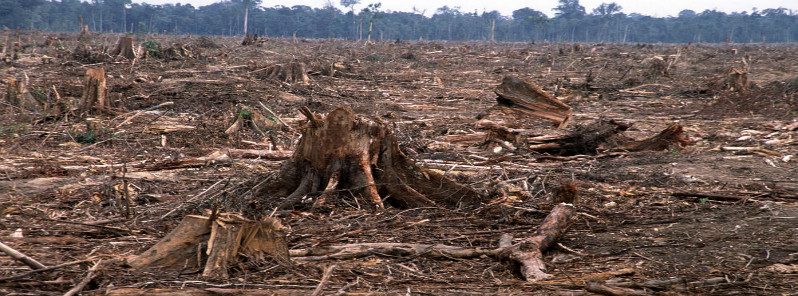Continued destruction of Earth’s plant life places humankind in jeopardy

If humans continue destroying plants at the current pace, the lack of irreplaceable biomass may soon endanger present human civilization and make it unsustainable – according to a paper published recently by University of Georgia researchers in the Proceedings of the National Academy of Sciences.
Earth was once devoid of life. Then came the organisms that could turn Sun's light into energy. After that, there was an explosion of plant and animal life that bathed the planet with lush forests and extraordinarily diverse ecosystems. Right now, humans are destroying plants at great quantities.
We get energy from the Sun. However, this doesn't occur directly. Chemical energy is stored in plants, or biomass, which is used for food and fuel, but which is also destroyed to make room for agriculture and expanding cities.
"You can think of the Earth like a battery that has been charged very slowly over billions of years," said the study's lead author, John Schramski, an associate professor in UGA's College of Engineering. "The Sun's energy is stored in plants and fossil fuels, but humans are draining energy much faster than it can be replenished."
The study's calculations are grounded in the fundamental principles of thermodynamics, a branch of physics concerned with the relationship between heat and mechanical energy. As per their calculations, the Earth contained approximately 1 000 billion tons of carbon in living biomass 2000 years ago. Since that time, humans have reduced that amount by almost half. It is estimated that just over 10 percent of that biomass was destroyed in just the last century.
Working with James H. Brown from the University of New Mexico, Schramski and UGA's David Gattie, an associate professor in the College of Engineering, show that the vast majority of losses come from deforestation, hastened by the advent of large-scale mechanized farming and the need for food for a rapidly growing population. As more biomass is destroyed, the planet has less stored energy. This is disturbing complex food webs and biological balances.
Schramski and his collaborators are hopeful that understanding and recognizing the importance of biomas, elimination of destruction of its plants and increased reliance of renewable energy may slow down our advancement to several uncertain complexities. The whole thing may require drastic measures to be taken.
Source: University of Georgia
Reference:
- "Human domination of the biosphere: Rapid discharge of the earth-space battery foretells the future of humankind" – John R. Schramski, David K. Gattie and James H. Brown – PNAS – July 15, 2015 – doi:10.1073/pnas.1508353112.
Featured Image: Deforestation in Tesso Nilo, Sumatra. Credit: WWF.

Good news for the planet and it intelligent inhabitantants!